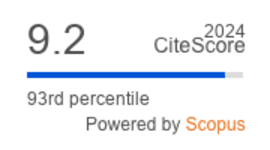Whole genome sequence of Streptomyces colonosanans strain MUSC 93JT isolated from mangrove forest in Malaysia
DOI:
https://doi.org/10.36877/pmmb.a0000061Abstract
Under the family Actinobacteria, streptomycetes are ubiquitous in nature, producing a wide spectrum of bioactive compounds including antibacterial, antioxidant, anticancer and immunomodulatory properties. During a screening programme in Malaysia, Streptomyces colonosanans MUSC 93JT was isolated as a novel Streptomyces sp. from the mangrove soil in Sarawak. The strain exhibited potent antioxidant activities and cytotoxic activity against several human cancer cell lines. Due to these data, the strain was subjected to whole genome sequencing to uncover its genomic potential and further improve the understanding of the strain. The genome of MUSC 93JT consists of 7,015,076 bp (G + C content of 69.90%), carrying a total of 5,859 protein coding genes. Analysis using a bioinformatics tool, antiSMASH predicted a total of four biosynthetic gene clusters which displayed similarity of more than 70% to known gene clusters and one of which was associated with the production of a natural protectant, ectoine. Displaying selective toxicity that kills only cancer cells, ectoine has showed its potential to be developed as therapeutic agents for humans. Altogether, the current project clearly highlights the importance of under-explored environment like mangrove in natural product discovery. The availability of whole genome sequence MUSC 93JT warrants subsequent in-depth investigation and optimization for the production of bioactive compounds which can be exploited for the health and wellbeing of mankind.Downloads
Published
2020-03-25
How to Cite
Ser, H.-L., Law, J. W.-F., Tan, W.-S., Yin, W.-F., & Chan, K.-G. (2020). Whole genome sequence of Streptomyces colonosanans strain MUSC 93JT isolated from mangrove forest in Malaysia. Progress In Microbes & Molecular Biology, 3(1). https://doi.org/10.36877/pmmb.a0000061
Issue
Section
Genome Report
License
Author(s) shall retain the copyright of their work and grant the Journal/Publisher right for the first publication with the work simultaneously licensed under:
Creative Commons Attribution-NonCommercial 4.0 International (CC BY-NC 4.0). This license allows for the copying, distribution and transmission of the work, provided the correct attribution of the original creator is stated. Adaptation and remixing are also permitted.

This broad license intends to facilitate free access to, as well as the unrestricted reuse of, original works of all types for non-commercial purposes.
The author(s) permits HH Publisher to publish this article that has not been submitted elsewhere.



.png)

.jpg)
